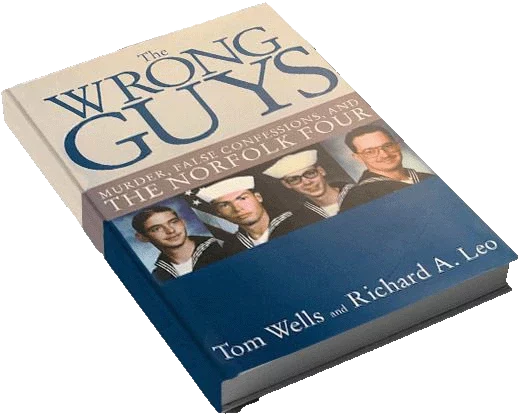Courts Martial Appeals Lawyer
If you feel that you have been unjustly treated through the carrying out of justice in military court, you have the right to appeal. At McCormack & McCormack, we serve as counsel for members of the Armed Forces nationwide. We are available to fight for your rights during this process. Our court martial attorney can be called upon to seek a new trial or reduced sentence.
If you have been unjustly convicted, you should get the help of a civilian attorney who has a background serving in the military court system. Do not hesitate to get the help you need today.
Need help with your court-martial appeal? Contact us today at (757) 463-7224 for a free case evaluation and professional legal guidance.
What Is a Court-Martial Appeal?
A court-martial appeal is a formal process where a higher military court reviews the legal proceedings of a court-martial to determine whether errors occurred that may have affected the trial’s outcome. Unlike a retrial, an appeal does not involve presenting new evidence or testimony. Instead, the appellate court examines the trial record, including transcripts, motions, and rulings, to evaluate whether the law was correctly applied and whether the accused received a fair trial.
Under the Uniform Code of Military Justice (UCMJ), courts-martial are categorized into three types based on the severity of the offense: summary courts-martial address minor offenses with a streamlined process and limited appeals; special courts-martial handle intermediate-level offenses akin to civilian misdemeanor trials, allowing appeals of convictions and sentences; and general courts-martial deal with serious offenses, including felonies, granting the right to appeal both convictions and sentences.
What are the Grounds for Appealing a Court-Martial Order?
There are several grounds on which a court-martial conviction can be appealed. These include:
- Legal Errors: Mistakes in the application of the law, such as misinterpreting statutes, applying incorrect legal standards, or improperly admitting or excluding evidence, can form the basis of an appeal.
- Procedural Errors: Courts-martial must follow strict procedural rules under the UCMJ. Deviations from these rules, such as improper jury instructions or failure to follow due process, can be grounds for appeal.
- Ineffective Assistance of Counsel: If your defense counsel failed to provide competent representation, it could have negatively impacted your case. Demonstrating ineffective assistance of counsel is a common ground for appeals.
- Insufficient Evidence: An appeal can challenge whether the evidence presented at trial was sufficient to support the conviction. If the evidence was weak, circumstantial, or inconsistent, it might not meet the standard of proof required for a conviction.
- Unlawful Command Influence (UCI): UCI occurs when a commander or other authority improperly interferes with the court-martial process. This is a serious violation of military justice and can result in an overturned conviction.
- Sentencing Errors: If the sentence imposed by the court-martial was excessive, disproportionate, or improperly calculated, it may be subject to appeal.
Identifying the specific errors in your trial requires a thorough review of the trial record, which a courts-martial appeals lawyer is well-equipped to conduct.
What is The Process of Appealing a Court Martial?
The process of seeking an appeal must be carefully managed by a legal professional with extensive knowledge and experience with the military justice system as well as the appeals process. Your request for appeal will be submitted to the Court of Criminal Appeals. There are only certain facts that are relevant to the appeals court, which include significant legal errors that may have impacted the outcome of your case, or an unfair sentence that goes beyond what should have been imposed for that offense.
There are very limited circumstances under which an appeal will be granted. If there are issues regarding fraud, newly discovered evidence, matters regarding a lack of jurisdiction in the offense or over that soldier, or an issue in which an error was prejudicial and impacted the rights of the accused; or the appropriateness of the sentence that was imposed.
Success in gaining the appeal will be based almost exclusively upon the legal skills and knowledge of your attorney. Although you have the right to be represented by a court-appointed lawyer, it is important that the process is addressed by an attorney familiar with the appeals process in the military justice system, and has a proven record in this area.
It is often far superior to retain the services of a civilian lawyer who has served in the military justice system. At McCormack & McCormack, the firm offers members of the Armed Forces highly skilled legal representation in appeals. Contact McCormack & McCormack as early as possible, as there are time limits in filing an appeal that must not be missed.
What are the Consequences of a Successful Appeal?
A successful court-martial appeal can result in various outcomes, depending on the nature of the errors identified and the decisions of the appellate court. Possible outcomes include:
- Reversal of Conviction: The appellate court may overturn the conviction entirely, clearing the service member’s record of the charges.
- Reduction of Sentence: The court may determine that the sentence imposed was excessive or improper and reduce it accordingly.
- New Trial: If significant procedural or legal errors are found, the court may order a new trial to ensure fairness.
- Dismissal of Charges: In cases of insufficient evidence or unlawful command influence, the charges may be dismissed altogether.
A favorable appeal can restore a service member’s rank, benefits, and reputation, underscoring the importance of working with a knowledgeable courts-martial appeals lawyer.
Importance of Timeliness in Appeals
Filing a court-martial appeal comes with strict deadlines, and missing these deadlines can prevent your appeal from even being considered. This is why it’s crucial to act quickly.
- Strict Time Limits: After a court-martial conviction, you typically have a limited window to file an appeal. For example, you may have just 60 days to submit your appeal to the U.S. Court of Appeals for the Armed Forces (CAAF).
- Why Deadlines Matter: If you miss these deadlines, your appeal may be automatically dismissed. In many cases, the appellate court won’t consider any reasons for the delay.
- Why Acting Quickly Helps: The sooner you begin the appeal process, the sooner you can have your case reviewed. Delays can jeopardize your chances for a favorable outcome. If you feel that your trial was unfair or errors were made, don’t wait to reach out to an experienced attorney.
Role of the U.S. Court of Appeals for the Armed Forces
The U.S. Court of Appeals for the Armed Forces (CAAF) is the highest military court in the country. It handles appeals from military members who are seeking to overturn their court-martial convictions.
- What Is the CAAF? This court is made up of civilian judges who are experienced in military law. They review cases to ensure that military justice has been properly applied.
- Appeal Process: The process involves submitting legal briefs that argue why your conviction or sentence should be overturned. The appellate court does not hear new evidence or testimony, but instead reviews the trial record to identify legal or procedural errors.
- Outcome: If the CAAF finds errors in the court-martial, it may reverse the conviction, reduce the sentence, or order a new trial.
Types of Military Offenses and Their Impact on Appeals
There are different types of offenses that can lead to a court-martial, and the severity of the offense can affect the appeals process.
- Summary Court-Martial: Typically used for minor offenses, this type of court-martial has limited appeal options. Appeals may only be made on very specific legal grounds.
- Special Court-Martial: Deals with intermediate offenses (similar to civilian misdemeanors). Convictions can be appealed, including both the verdict and the sentence.
- General Court-Martial: The most serious court-martial, for felony-level offenses. Convictions from general court-martials have the broadest appeal options, allowing for both the conviction and sentence to be contested.
The severity of the offense will determine how the case is handled and what options are available for appealing the verdict or sentence. The more serious the offense, the more likely the appeal will be carefully scrutinized.
Frequently Asked Questions (FAQ)
How long does a court-martial appeal take?
- The duration of a court-martial appeal varies, but the process typically takes several months to a year or more. The appellate court needs time to review the trial record, legal briefs, and any new arguments presented. The complexity of the case and the court’s workload can also affect the timeline.
Can new evidence be introduced during an appeal?
- No, a court-martial appeal does not allow for the introduction of new evidence or testimony. Appeals are based on reviewing the trial record to identify legal errors or procedural issues that may have affected the fairness of the trial or the outcome.
What if I miss the deadline for filing an appeal?
- Missing the appeal deadline is a serious issue. In most cases, the court will not consider your appeal if it is filed after the deadline has passed. However, in very limited circumstances, such as new evidence emerging after the deadline, there may be exceptions. Consulting with an attorney immediately can help ensure that deadlines are met.
Can I appeal a court-martial decision without an attorney?
- While it’s possible to file an appeal without an attorney, it is strongly discouraged. Court-martial appeals are complex, and the rules and procedures are strict. A skilled military appeals lawyer will help ensure that your appeal is filed correctly, improving your chances of success.
How do I know if I have grounds for an appeal?
- Grounds for an appeal can include legal or procedural errors, ineffective assistance of counsel, insufficient evidence to support the conviction, unlawful command influence, or an excessive or improper sentence. An experienced court-martial appeals attorney can evaluate your case and help determine if an appeal is appropriate.
Can I represent myself in a court-martial appeal?
- Yes, you have the right to represent yourself in a court-martial appeal, but it is not recommended. The appeals process is highly technical and requires a deep understanding of military law and the UCMJ. Legal representation by an experienced attorney is crucial to ensure that your rights are properly protected.
Can my court-martial conviction be overturned?
- Yes, it is possible for a court-martial conviction to be overturned if the appellate court finds significant errors in the trial. These errors could involve violations of legal procedures or rights that affected the fairness of the trial. However, successful appeals depend on the specific facts of the case and the quality of legal representation.
Serving the Members of the Armed Forces Nationwide in Courts Martial Appeals
If you have had an excessive sentence imposed upon you, or you are aware that errors were made by the judge or others involved in your court martial, you need to act quickly. Contact the professionals at McCormack & McCormack immediately and speak with us about your case. We offer a free case evaluation to inquiring individuals to thoroughly assess their case.
Your appeal will be filed with the U.S. Court of Appeals for the Armed Forces. As your future freedom, your military career and your honor have been destroyed by conviction; it could not be more important that your appeal is filed correctly.
Our firm’s goal will be to fully and correctly file your appeal with documentation support so that there is a higher possibility of success. Call upon our firm for the professional representation you need for this critical matter. Your life and future could depend upon it.
Facing a court-martial conviction? Contact us now at (757) 463-7224 to discuss your appeal options with an experienced attorney.




